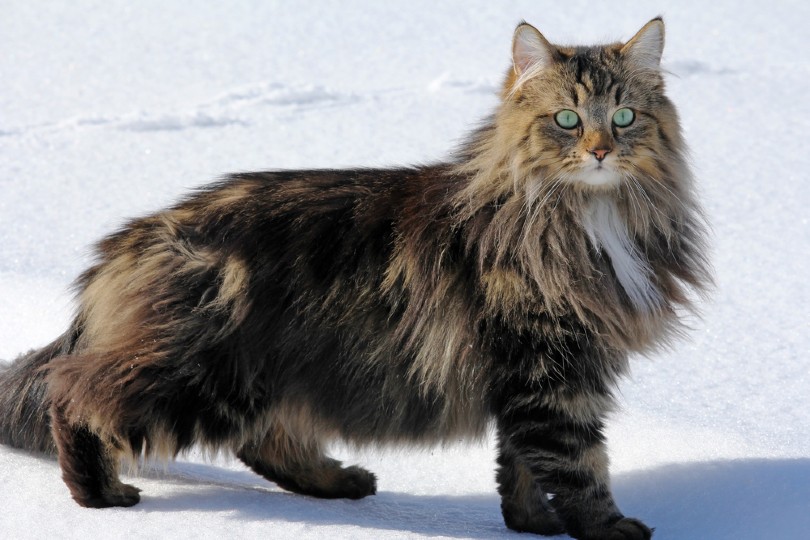Obesity is the most common health problem for norwegian forest cats for sale. A cat is considered obese if it weighs 20% more than its optimal weight and if the extra weight is a result of the accumulation of fat. If a cat is anywhere from 1 to 19% heavier than its ideal body weight, then it is considered overweight and not obese. In order for a cat to maintain good health and have a long and happy life, the cat must maintain a healthy weight.
There is no magical body weight that is appropriate for all cats. The breed, general size, and age of the cat all have a factor in how much it should weigh. To determine the optimal weight of a specific cat, it is best to consult a veterinarian. However typically, a cat whose ribs are difficult to feel because they are covered with a layer of fat is overweight or obese, depending on how thick the layer of fat is.
A cat is also considered to be obese if it has a moderate or thick layer of fat that covers all of its bony areas. Some obese cats even develop a bulge under the abdomen, which is sometimes referred to as a “skirt.” If the cat doesn’t have a noticeable waist and if the back appears broad when viewed from above, the cat is obese
When a cat is either obese or overweight, it runs the risk of developing a variety of health disorders such as aggravation of osteoarthritis, decreased stamina, diabetes mellitus, Hepatic lipidosis — which is fat deposited in the liver, joint stress, lower urinary tract disease, and non-allergic skin diseases.
Some cats are more likely to become overweight or obese than others. Typically, however, cats are just like humans. If a cat eats more calories than it uses, it will gain weight. The excess energy it gains from the calories becomes stored as fat.
Purebred cats, though, are less likely to become obese than mixed breeds. In addition, cats that are neutered have a tendency to gain weight more easily than those who are not, probably in part due to the fact that non-neutered cats have the disposition to roam in search of a mate. In addition, the metabolic rate of a neutered cat decreases by about 20%. Therefore, a neutered cat needs less food in order to maintain its ideal body weight.
Cats under two years of age are less likely to be overweight or obese than cats that are between the ages of two and ten. This is because cats between these ages need less energy. On the other hand, geriatric cats, which are older than ten, have a tendency to be underweight. In addition, certain medications can make a cat more likely to gain weight, as some medications will cause an increase in appetite and other medications cause a decrease in metabolic rate. Some medications that tend to lead to weight gain in cats are cortisosteroids, cyperoheptidine, and amytripyline.

More Stories
What Injuries Do New York Car Accident Doctors Treat? A Comprehensive Overview
MetaMask: The Gateway to the Decentralized Web
The Salt Trick: A Surprising Yet Powerful Solution